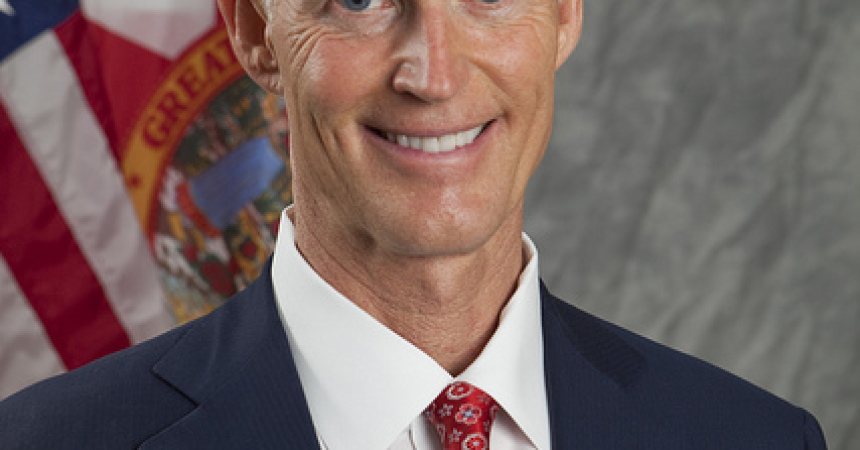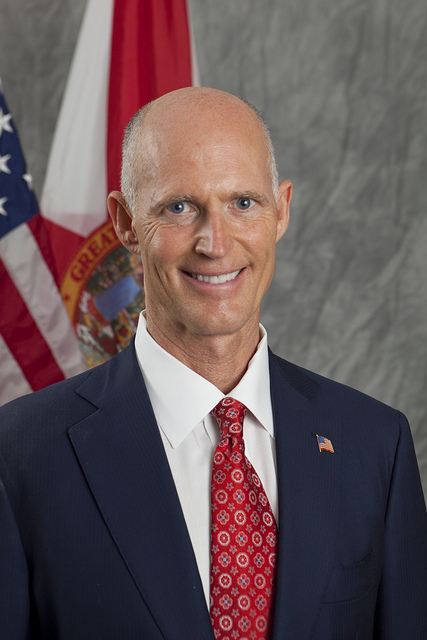
Scott, State Workers End Fight Over Drug Tests
By Dara Kam
The News Service of Florida
Ending a four-year legal battle that cost taxpayers at least $675,000, Gov. Rick Scott and lawyers representing a state workers’ union have agreed on the types of Florida government employees who can be forced to undergo suspicionless drug tests.
Lawyers for the American Civil Liberties Union of Florida, which represents the workers, and Scott haggled for more than a year over which employees can be subjected to random drug testing after an appellate court found that Scott’s blanket drug-screening policy violated constitutional protections against unreasonable searches and seizures by the government.
Under a settlement agreement filed Monday in federal court, the state agreed to pay the ACLU $375,000 in legal costs for the drawn-out litigation and to limit the drug tests to about 7,000 workers in 157 different job classes, a fraction of the 34,000 employees Scott’s blanket policy was intended to cover. The agreement applies to the union’s collective bargaining units, which include employees who are not dues-paying members, and job applicants.
Scott, whose drug-testing push also included an attempt to require applicants for welfare benefits to submitt to urinalyses, issued an executive order requiring all state workers to undergo random drug screens shortly after he took office in 2011.
A federal judge put the policy on hold after the ACLU filed suit that summer, and the 11th U.S. Circuit Court of Appeals ruled that Scott could not constitutionally justify drug testing for all types of state employees without a reason, though it said testing could occur for some workers such as those in “safety-sensitive” positions. The appeals court ordered Scott and lawyers for the American Federation of State, County and Municipal Employees, or AFSCME, to come up with a list of jobs that could be subject to testing.
Scott appealed that decision to the U.S. Supreme Court, which refused to consider the case.
Monday’s agreement, which still requires court approval, identified more than 100 job classes that Scott can test for drug or alcohol use. Workers in most of the positions deal with vulnerable children or adults, handle heavy equipment or are already required to undergo medical tests for other reasons.
“We are pleased that the settlement will allow Florida to protect families by ensuring state employees working in the most critical areas of safety and security remain drug-free,” Scott spokesman John Tupps said.
In addition to the $375,000 Scott agreed to give the ACLU, the state has paid private lawyer Thomas Bishop at least $180,000 for legal fees associated with the case. The state has also spent nearly $120,000 on a special master to oversee the negotiations with the ACLU.
“It doesn’t seem to have panned out. That’s an understatement. It seems like an enormous waste of money spent on something that was obviously not constitutional to begin with. I’m not sure why (Scott) made that choice and why he decided to pursue it for so long, but we are happy that the courts have recognized the unconstitutionality of this policy and that we can finally bring this very expensive — to the taxpayers and the parties — litigation to a close,” said ACLU lawyer Shalini Goel Agarwal.
The minimum $675,000 tab for the state worker drug-testing lawsuit does not include at least $300,000 Scott also spent on a losing battle to force applicants for Temporary Assistance for Needy Families to undergo drug screens. Scott dropped his appeal of the case earlier this year after the same federal appeals court ruled that the state law, pushed by Scott in his first bid for governor, also violated Fourth Amendment protections against unreasonable searches and seizures by the government. The taxpayers’ bill for the welfare drug-testing lawsuit does not include potentially hefty legal fees for the ACLU, which also represented the plaintiff — a veteran who is a single parent — in that case.








